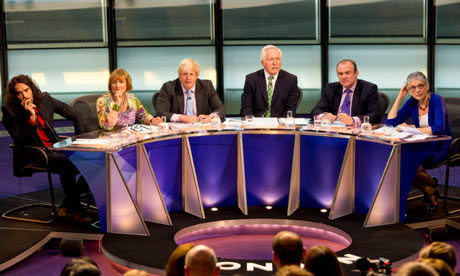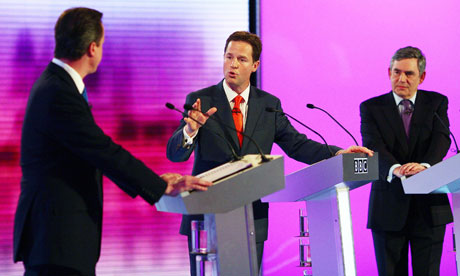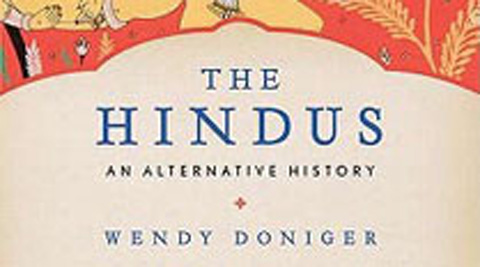Teams that encourage individualism along with a sense of belonging to the larger group are likelier to succeed
Ed Smith in Cricinfo
Does team spirit exist? To its critics it is "an illusion glimpsed only in victory", as the footballer Steve Archibald famously argued. To outright cynics, it is worse than that: a convenient excuse for captains and managers to justify getting rid of good players on spurious grounds.
The problem is partly one of language. Many uses of "team spirit" are misleading, even meaningless. If team spirit is defined as untroubled laughter and bonhomie, then I'm afraid all teams - even the most spirited ones - suffer huge fluctuations in mood and temper. A team, like a family, cannot be elated all the time.
Another flawed use of the phrase congratulates players on their "team-spiritedness" for kindly but showy irrelevances. This is also a mistake. One day soon a football defence will concede a goal at a corner because they are too busy congratulating each other for heading away the last corner - and, in attending to "team spirit", forgetting to do their jobs.
I'm all for encouragement and support, but I am suspicious of the cricketing fad for tapping team-mates on the back when they "stop" a ball trickling along the infield at 3mph, or the now mandatory dressing-room standing ovation and overhead clapping that greets every on-field milestone. All this has little to with the "supported" player and a lot to do with the "supporting" one. Look at me, he is saying, what a good team man I am! It is usually just mannered behaviour. When a dressing-room standing ovation is awarded to even the most routine hundred, it logically follows that a new celebration is required to mark the really special centuries - perhaps a shirts-off, punching-the-air, post-goal pile-up on the balcony? This, however, will only be a temporary solution until it, too, becomes routine.
Nor can team spirit conjure short-term miracles. In that sense of the phrase, team spirit is indeed overrated. Ask any great captain how much team spirit helps when the opposition is 500 for 2 and his bowling attack is on its knees. Answer: not much use at all. As with great captaincy, we expect too much of team spirit. It is not about pulling rabbits out of hats.
But rather than throw out the idea of team spirit, we should take more care to define it properly. Instead of giddiness, it is about respect. In place of superficial and irrelevant kindness, it is about tough love. Rather than a short-term panacea, it is a long-term strategy.
A better term is culture. If we started using "team culture" instead of "team spirit", then a lot of misunderstandings would be avoided.
| Good culture does not uphold the silly pretence that elite sportsmen have no self-interest at stake. Within a very strong team culture, it is possible to talk openly about the inevitable transition from one generation to the next | |||
Let me give you an example of bad team culture. In county cricket, players mostly travel around the country in individual cars rather than a single team bus, two or three team-mates in each car. One other piece of background information is that after about ten years playing for one team, county pros are awarded a "benefit year" - an archaic system sponsored by the clubs - that entitles them to raise extra money, over and above their salaries, through private fundraising. It is very time-consuming and tiring - a benefit year is almost like having another job - but it can be lucrative.
One day, I picked up a colleague before the first match of the season. We were both senior players and got on pretty well. "How are you?" I asked, as he got into the car. "To be honest, I could do with an injury so I can miss some cricket and work on my benefit year." If only two of us had been in the car, the comment would have been selfish but harmless. Sitting in the back seat, however, was an 18-year-old who had only played a handful of county matches. So the cynical comment undermined the younger player's healthy excitement about the match and the new season. It sent the message: my own bank balance is more important than the team winning. Sadly, this was the culture the senior player had inherited from his mentors, and they from theirs. The money-first culture was passed on from one generation to the next.
If you don't believe in team culture, try imagining an All Black rugby player saying that comment within earshot of a young player, or envisage a similar scene within Steve Waugh's Australian team. I can't imagine it.
So what does a good culture look like? Sport relies on necessary personal ambition and individualism. But that can exist alongside a sense of tradition and institutional respect. The result is a kind of individualism-plus.
Good culture does not uphold the silly pretence that elite sportsmen have no self-interest at stake. Indeed, within a very strong team culture, it is possible to talk openly - even affectionately - about the inevitable transition from one generation to the next.
Here is a story about three similar players - now aged 43, 34 and 29 - who had overlapping careers at the same football club. Twenty-five years ago, a midfield player emerged who ran the game with his precise, attacking passing. Fifteen years ago, a junior came along who was even better - and the two men played alongside each other, sharing insights and tactical wisdom. Five years after that, a third playmaker, a tiny teenager, pitched up to train with the team. The oldest midfielder watched the new boy. "You've seen that?" he said to the middle "brother". "You'll push me towards the exit, but that guy will send us both into retirement!"
Only, he didn't, not completely. The older player turned to coaching, where he harnessed the brilliance of the other two. The team? Barcelona. Their names? Pep Guardiola, Xavi Hernandez and Andres Iniesta.
The culture of Barcelona begins at La Masia, their youth academy. When the football writer Simon Kuper visited La Masia, the director explained how it remained home to the players even when they were superstars: "Messi and Iniesta drop by to eat. They come to us with their problems, as they would to their mother and father. We know their glories, we know their miseries."
In sport, business or education, culture is always central to long-term institutional excellence. But it is subtle and often scarcely visible: a sense of belonging, trust and continuity; knowledge being shared and challenged; competitiveness developing alongside mutual respect; the reinforcement of fun as well as toughness.
Good culture in a school does not mean that every pupil is deliriously happy every minute of the day. But it does mean that bullying is rare and respect develops across different activities. Good culture is always partly self-regulating. In the 18th century, the precursors of the London Stock Exchange were the informal exchanges in coffee shops. They developed their own systems of rules and enforcement. Those who didn't settle their accounts were "named and shamed" by their peers and labelled "lame duck". It is the same with teams. In a strong team culture, senior players should feel empowered to challenge colleagues who are undermining the group ethic.
Here is the difficult part. Culture is hard to build, easy to undermine. It often begins with difficult, unpopular decisions. The power of good culture will often be mocked. But it is real, all right. That's how Barcelona develop so many of their own stars, and how the All Blacks - despite New Zealand's tiny talent pool - always stay at the top.





